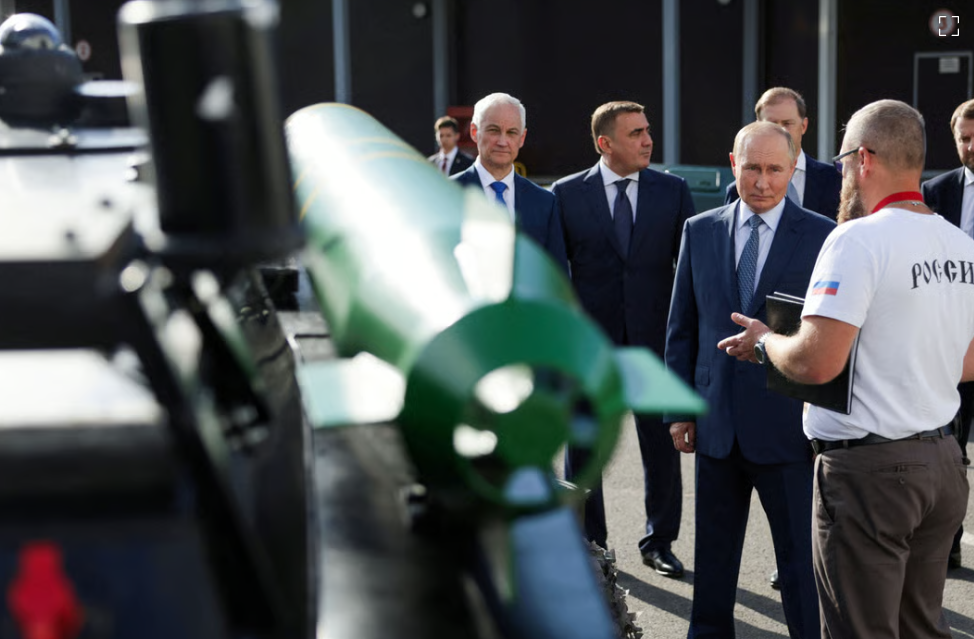"If the United States had not provided assistance to Ukraine during the full-scale Russian invasion, Russia would have deprived Ukraine of its independence and launched missiles and drones from its territory towards Europe," said a senior Pentagon official.
During a meeting with journalists at the Foundation for Defense of Democracies (FDD), Celeste Wallander, the Deputy Secretary of Defense for International Security Affairs and former advisor to President Barack Obama, stated that if Ukraine had not held out, the military forces of the United States and American businesses operating in Europe would have been at risk.
"Those drones that you see the Russians sending from Crimea over Ukrainian cities could have been used to attack European capitals. Those cruise missiles that the Russians are using against critical Ukrainian energy infrastructure would have threatened U.S. NATO allies," Wallander believes.
According to her, Americans in Europe, including military personnel, businessmen, ordinary citizens, and American students studying in Europe on exchange programs, would have been at risk.
American support for Ukraine, and above all the courage and skill of the Ukrainians, prevented all of this, Wallander concluded.
"But the matter is not yet concluded, and the threat from Russia is not eliminated," emphasized the Pentagon official.
She reminded that Russia has established relations with North Korea, China, and Iran to circumvent the sanctions imposed on it.
And the threat to Europe remains relevant in light of delays in the US Congress voting on aid to Ukraine.
"The Ukrainians have learned to fight, they are holding back the Russians, disrupted their operations in the Black Sea, restored grain exports, providing the Global South with the necessary resources. But since we cannot supply them with ammunition, air defense systems, spare parts needed on the front line, we can very well return to the scenario of 2022 and the threat of shelling Europe," warned Wallander.
She also emphasized to the Americans that the United States ranks 16th in the world in terms of the ratio of GDP to aid provided to Ukraine.
The Deputy Minister of Defense of the United States also formulated how victory for Ukraine looks in her understanding:
"It's Ukraine that continues to remain a sovereign state, recognized within its internationally recognized borders, an independent country that independently determines its national security policy, its foreign policy. Its economic policy is determined by the Ukrainian people and its democratically elected leadership. And these are the goals we set for ourselves."
Wallander also noted that there are many speculations about the possibility of negotiations between Ukraine and Russia, but emphasized that it is up to the Ukrainians to decide. And the United States, she said, supports the territorial integrity of Ukraine, its sovereignty, independence, and the right to choose.
Regarding the goals for the year 2024, the official commented:
"I hope we can reinvigorate our support by successfully addressing issues in Congress. We will formulate security assistance for resource operations necessary to achieve the goals set by the leadership of Ukraine and confirmed by the best military advice."
She did not share specifics about such operations due to operational security considerations.
"The Ukrainians decide how to act. We do indeed offer them our advice. We have very strong relationships. We have great authority and trust between the political leadership of the United States and Ukraine, in relations between the militaries," emphasized Wallander.
Regarding NATO membership, the official said that it is a political decision, not a technical one:
"Ukraine very clearly states its desire to become a member of NATO. We support this. We work with Ukraine on programs to meet operational interoperability standards, build defense institutions, so we fully support this aspiration, and we cooperate."
The official says it's "too early to speculate" on the specific terms of Ukraine's accession to NATO because Ukraine is currently "not in that situation."
Today, she says, it's important to "work through 2024" and provide Ukraine with the capabilities—both economic and military—to achieve its goals.
Among the Pentagon's plans is also to assist Ukrainians in further training, which they will need when recruiting new soldiers.
"We support Ukraine, we want Ukraine to be sovereign, independent, and safe, so that the Ukrainian people can live the European life they have chosen, with security and prosperity," summarized Wallander.
The official added that financial support for Ukraine is not only in the interest of US national security but also a moral obligation due to commitments under the Budapest Memorandum on Security Assurances.
It was a compromise Ukraine made by renouncing nuclear weapons.





















